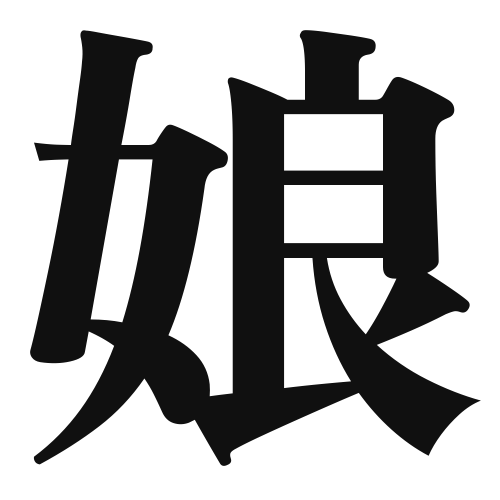1. Overview of Meaning
The kanji “娘” (musume) means “daughter” in Japanese. It refers to a female child or offspring, often used in familial contexts.
2. Formation and Radical
Formation of the Kanji: The kanji “娘” is a compound character that combines two elements: the radical “女” (woman) and the phonetic component “良” (ryou), which contributes to its pronunciation.
Radical: The radical of “娘” is “女,” which signifies femininity or womanhood.
3. Examples of Usage
Common Words and Phrases:
- 娘 (musume) – daughter
- 娘さん (musume-san) – young lady or daughter (polite)
Example Sentences in Daily Conversation:
- 私の娘は学校に行っています。 (Watashi no musume wa gakkou ni itteimasu.) – My daughter is going to school.
- 彼女はとても優しい娘です。 (Kanojo wa totemo yasashii musume desu.) – She is a very kind daughter.
4. Synonyms and Antonyms
Similar Kanji:
- 子 (ko) – child (gender-neutral, can refer to both sons and daughters)
- 姉 (ane) – older sister (refers to a female sibling)
Antonyms:
- 息子 (musuko) – son (refers to a male child)
5. Cultural and Historical Background
Relation to Japanese Culture: In Japan, the concept of family is highly valued, and the term “娘” is often used in various contexts, including literature and everyday life.
Proverbs and Idioms:
- 「娘は父に似る」 (Musume wa chichi ni niru) – “Daughters resemble their fathers,” which highlights the bond between fathers and daughters.
